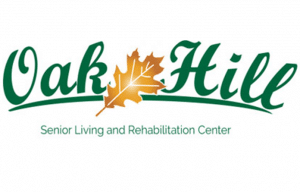Pandemic impacts mental health
The demand for mental health services has increased since the COVID pandemic began, with depression and anxiety making themselves known as the most prevalent concerns.
The Centers for Disease Control and Prevention released a report in spring 2021 on this topic. By partnering with the U.S. Census Bureau to conduct the Household Pulse Survey, researchers found that from August 2020 to February 2021, the percentage of adults with recent symptoms of anxiety or a depressive disorder increased by 5.1 percent. In addition, the percentage of individuals struggling with an unmet mental health need increased by 2.5 percent.
As of February 2021, these figures sat at 41.5 and 11.7 percent, respectively.
According to a meta-analysis by the Journal of American Medical Association, one in four youth globally experienced clinically elevated depression symptoms and one in five experienced clinically elevated anxiety symptoms during the first year of the pandemic.
This data had doubled from pre-pandemic times.
Jaime Becker, a pediatric mental health specialist at Heart to Heart Pediatrics in Waterloo, said she too has witnessed a rise in young patients seeking mental health assistance. Becker said research medical professionals have obtained shows there has been a 30-50 percent increase in anxiety and depression symptoms that can lead to diagnoses.
While Human Support Services in Monroe County has seen an increase in the need for mental health services across all age groups since the pandemic began, it too agreed this need in the youth population stands out.
HSS leadership reported that in the last 1.5 years, they have seen a 20 percent increase in the youth they serve for mental health-related concerns, the two largest being anxiety and depression.
“They have no predictability,” HSS Executive Director Anne Riley said. “Everything is upside down.”
One of the largest changes children and adolescents have experienced during the pandemic is their schooling.
“For some kids, school was their outlet. In some situations, their home life and other things that are happening in their lives aren’t safe or they are not stable, so school can provide that stability,” Becker said, adding, “Schools certainly were scrambling to find out ‘What can we do to still educate these kids and meet their needs?’ and unfortunately, that equated to a lot of situations where we’re learning from home for many months or at least (seeing) limited learning in that sense.”
The strain remote learning had on parents can also be felt by their children, Becker and HSS Clinical Director Ivan Milicevic said.
“People were trying to switch from going into an office every day to trying to work from home plus be a parent, plus help their kids with school,” Becker explained. “We’re stressed; we know that kids also pick up on stress that happens in the home and with parents, so if it was a situation where a parent was feeling more stressed or anxious, then inevitably that has an effect to some degree on kids as well.”
While it is commonly said younger students were more impacted by schooling changes as it can be harder for them to learn foundational skills remotely than it would be for older grades to adjust to virtual learning, this does not mean older students were not affected by the change.
In fact, both Becker and HSS personally saw more junior high and high-school aged children and young adults seeking mental health services. This age group made up the majority of the 20 percent increase in youth requesting mental health services from HSS.
“(It’s) definitely the ages where you see greater (importance on) social relationships,” Milicevic said of this demographic.
At the same time, HSS is seeing the increased community need for mental health services, it – like many other employers – is also battling short staffing.
Riley said in order to be comfortably staffed, HSS needs 11 mental health professionals. It is currently operating with seven.
Riley said the combination of this need and lack of adequate staffing numbers resulted in needing to put potential patients on a waiting – something similar organizations are having to do.
Yet, HSS is finding ways to creatively meet the community’s growing need by intentionally focusing on offering more group sessions. HSS leaders explained they did group sessions before the pandemic, each group focusing on a different topic or demographic, but are now honing in on their benefits to not only offer more services to more people at a time, preventing long wait lists, but also to give a sense of social support that is often limited by the pandemic.
“People don’t have the support that they did before because of how things have changed in the community,” Milicevic said.
Currently, HSS is hosting a group called “A Handful of Hope – Tools for a Trying Time” from 6-7 p.m. Thursdays that teaches participants tools for facing depression and anxiety during triggering situations. While the group started meeting last week, individuals can still join.
Because State Bank sponsors the group, community members do not need to wait until insurance is processed to join and can obtain group services free of charge.
Register by calling 618-939-4444, ext. 1257.
HSS Chief Program Officer Stephanie Moore stressed HSS is still offering its crisis services. Under these services, HSS provides a counselor or crisis worker to respond to crisis calls from police, schools and more. A trained professional will help the individual in crisis get to a better emotional state and then refer them to services as needed, Moore said.
During business hours, individuals in need may call the HSS office at 618-939-4444 and inform HSS staff they are in crisis, at which time they will be connected to a crisis worker.
HSS also provides professional counseling individual sessions for individuals ages 5 and up by appointment. HSS accepts all state Medicaid plans. If HSS is unable to bill a client’s insurance, a sliding scale fee will be offered.
Becker also recommended individuals visit psychologytoday.com and read prospective counselors’ and therapists’ profiles. There is a feature on the website in which one can enter their zip code to see mental health providers in their area. Often, Becker said, counselors and therapists will list specialties on their profiles as well as what insurance they accept.
SSM Health’s Behavioral Health Urgent Care located at 12355 DePaul Drive Suite 150 in St. Louis can be an essential help to individuals in mental health crises who need immediate care, Becker said.
“Unfortunately, if you’re in crisis, let’s say you’re feeling suicidal, the ER has to call somebody in from an agency to come in and evaluate … It’s not a smooth system. So DePaul opened a mental health urgent care center. It is staffed with crisis therapists,” Becker said.
Individuals may also call the National Suicide Prevention Hotline, 24 hours a day, at 1-800-273-8255. For cases where somebody is endangering themselves or another or may do so, call 911.
Becker said if there is one positive thing about the pandemic, it’s that it is bringing mental health to the forefront of conversations.
“Not much good overall to people’s physical and mental health has happened with the pandemic, but I always tell people the one good thing that did happen is that people are talking about mental health more. It’s something that was starting to happen, but it really, really started to pick up (with the pandemic),” Becker said. “The saying I always use is ‘It’s OK to not be OK, it’s just not OK to not tell somebody and (not) figure out what we need to do.’”
She encourages those who think they may be experiencing mental health concerns to seek help sooner than later.
“Don’t let it go on too long, don’t wait until things are completely falling apart,” Becker said, adding, “It takes a lot of time to build up to a certain point, so it’s going to take a lot of time to make that better.”
| ReplyForward |






